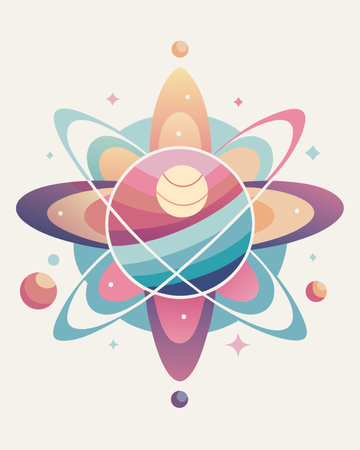1. Introduction: The Mystique of the Full Moon in British Folklore
Throughout the centuries, the full moon has occupied a place of profound intrigue within the United Kingdom’s cultural landscape. Steeped in legend and immortalised in poetry, its silvery presence has not only lit the night sky but also inspired the collective imagination of generations. From Shakespeare’s enchanted forests to the haunting tales of the Cornish coast, the full moon serves as a luminary around which many British traditions revolve. This fascination is deeply interwoven with local customs—be it the ancient practice of moon-watching on Salisbury Plain or superstitions whispered across English villages about lunacy and transformation. Moreover, lunar symbolism persists in British literature and art, where the full moon is often portrayed as a harbinger of heightened emotions, mystery, and change. As we begin to unravel how the full moon might influence emotional energy, it is essential first to appreciate its enduring allure within British folklore—a tapestry rich with stories that reflect both reverence and curiosity towards our celestial neighbour.
2. Lunar Astrology: Understanding the Moon’s Phases and Their Meanings
To comprehend how the full moon influences emotional energy, it is essential to first unravel the foundations of lunar astrology. Rooted in centuries-old observation, lunar astrology examines the cyclical nature of the moon and its perceived impact on human affairs—a tradition deeply woven into British astrological practice. The lunar cycle consists of eight distinct phases, each carrying its own symbolic significance, yet it is the full moon that has long commanded particular attention among astrologers across the British Isles.
The Lunar Cycle in Astrological Tradition
British astrologers have historically viewed the progression from new moon to full moon as an allegory for personal growth and emotional development. Each phase is thought to resonate with a different energetic quality, influencing not only individual moods but also collective experiences. The following table summarises these phases and their traditional interpretations:
| Lunar Phase | Traditional Meaning (British Astrology) |
|---|---|
| New Moon | Beginnings; planting intentions; inner reflection |
| Waxing Crescent | Emergence; hope; nurturing ideas |
| First Quarter | Challenge; decision-making; overcoming obstacles |
| Waxing Gibbous | Refinement; patience; preparation for culmination |
| Full Moon | Culmination; heightened emotions; revelation and release |
| Waning Gibbous | Gratitude; sharing insights; dissemination of results |
| Last Quarter | Letting go; forgiveness; re-evaluation |
| Waning Crescent | Surrender; rest; closure before renewal |
The Full Moon’s Pivotal Role in British Astrological Lore
The full moon stands as a pivotal moment within this cycle—often described by British astrologers as a time when psychic energies are at their zenith and emotions reach peak intensity. In ancient Britain, this phase was observed with ritual and reverence, believed to illuminate truths hidden during darker lunar stages. Modern practitioners continue this legacy, interpreting the full moon’s prominence as both a mirror and amplifier of personal and communal emotional states.
Cultural Continuity and Contemporary Insights
This longstanding fascination with the full moon’s symbolism persists in today’s British culture, from poetic references to its “silvered light” to contemporary gatherings celebrating its arrival. Thus, understanding these cycles—and the enduring interpretations crafted by generations of British astrologers—provides vital context for examining how the full moon might still shape our emotional energies in subtle but profound ways.

3. Full Moon and Emotional Energy: Psychological and Astrological Perspectives
The relationship between the full moon and human emotion has long captivated both astrologers and psychologists, each offering distinct frameworks for understanding how lunar cycles might shape our internal states. Within astrological tradition, the full moon is often depicted as a time when emotions crest—illuminated and intensified by the moon’s radiant fullness. Astrologers posit that the moon governs the realm of feelings, intuition, and subconscious impulses; thus, its fullest phase is thought to amplify emotional energy, sometimes leading to heightened sensitivity, vivid dreams, or even restless behaviour.
From a psychological standpoint, the question of whether the full moon genuinely influences mood or behaviour has prompted a variety of scientific inquiries. Studies conducted in Britain and elsewhere have produced mixed results; some have reported subtle increases in sleep disturbances or fluctuations in mood during the full moon, while others dismiss such findings as products of confirmation bias or cultural expectation. Notably, a 2014 study published in the journal “Current Biology” suggested that participants experienced reduced sleep quality during full moon phases—a phenomenon potentially linked to evolutionary circadian rhythms rather than any mystical force.
Yet, one cannot entirely discount the role of collective belief and societal narrative in shaping personal experience. In British folklore, stories abound of lunacy and transformation coinciding with the moon’s zenith—tales that have permeated public consciousness and may subtly influence how individuals perceive their own emotional states at this time. Psychologists refer to this as the “expectancy effect,” wherein one’s beliefs about the moon can trigger self-fulfilling changes in mood or behaviour.
Intriguingly, both schools of thought converge on the notion that the full moon serves as a mirror—reflecting what lies beneath the surface. Whether viewed through an astrological lens or examined by empirical science, there remains an enduring fascination with how celestial rhythms might synchronise with our own inner tides. While definitive proof remains elusive, the dialogue between ancient wisdom and modern research continues to enrich our understanding of emotional energy under lunar influence.
4. British Customs and Moonlit Rituals
The relationship between the full moon and emotional energy is deeply woven into the fabric of British tradition. From the ancient Celts, who saw the lunar phases as powerful markers for spiritual observance, to present-day communities embracing moonlit gatherings, the full moon has long been a catalyst for collective emotion and ritualistic practice across Britain.
Ancient Celtic Ceremonies
The Celts, whose influence still lingers in British folklore, regarded the full moon as a time when the veil between the physical and spiritual worlds was at its thinnest. Sacred sites such as Stonehenge and Avebury were believed to harness lunar energies during full moons, drawing tribes together for ceremonies that combined drumming, chanting, and offerings to lunar deities. Emotional release, gratitude, and communal bonding were central themes of these gatherings.
Medieval Folk Traditions
As Christianity spread across Britain, many pagan customs intertwined with new religious practices. Folk traditions like “moon bathing”—standing in the light of the full moon to absorb its energy—persisted in rural areas. The belief that cutting hair or planting crops under a full moon would bring prosperity or good fortune became common wisdom, reflecting an enduring connection between lunar cycles and daily life.
Modern-Day Gatherings
Today, fascination with the full moon endures throughout the UK. Spiritual groups often host “moon circles,” where participants engage in meditation, intention-setting, or creative expression beneath the moon’s glow. Contemporary celebrations frequently blend ancient rituals with modern mindfulness techniques, providing a space for emotional reflection and community support.
British Full Moon Traditions: Then & Now
| Era | Custom/Practice | Emotional Focus |
|---|---|---|
| Celtic | Ceremonial gatherings at sacred sites | Communal healing & spiritual connection |
| Medieval | Moon bathing; agricultural rituals | Personal prosperity & renewal |
| Modern | Moon circles; guided meditations | Emotional release & self-awareness |
This tapestry of tradition reveals how the full moon continues to shape emotional energy within British culture. Whether through ancient rites or contemporary practices, Britons have long sought harmony by aligning their inner world with lunar rhythms—a testament to the enduring mystique of the moonlit night.
5. Harnessing Full Moon Energy: Practical Advice for Everyday Life
The full moon, with its ethereal glow illuminating the British countryside and city skylines alike, has long been revered in folklore and lunar astrology as a potent catalyst for emotional energy. To make the most of this celestial influence, it is wise to ground one’s approach in time-honoured British sensibility—marked by mindfulness, observation, and gentle introspection.
Embracing Stillness and Reflection
During the full moon, carve out a moment for quiet contemplation. As many Britons do, take a stroll through your local park or along a canal at moonrise. Allow yourself to absorb the silvery light and let your thoughts settle. The act of walking beneath the moon not only echoes ancient traditions but also offers a space to process heightened emotions and gain clarity on personal challenges.
Journaling: A Tradition of Self-Inquiry
Drawing upon the British affinity for keeping diaries and correspondence, consider journaling your feelings during this phase. Record any shifts in mood or intuition you experience; such self-inquiry can help unearth patterns linked to lunar cycles. Over time, this practice fosters emotional balance and supports well-informed decisions rooted in self-awareness.
Moonlit Tea Rituals
Nothing speaks more to British culture than tea. Create a simple evening ritual by brewing your favourite blend as the full moon rises. Whether enjoyed alone or shared with close friends, this mindful pause—accompanied perhaps by a traditional biscuit—serves as an anchor amidst swirling emotions. It is a gentle reminder that comfort can be found in routine even as energies peak.
Setting Intentions with Purpose
Lunar astrology suggests the full moon is optimal for setting intentions or releasing what no longer serves you. In keeping with British pragmatism, keep these resolutions realistic and meaningful. Write them down on quality paper—perhaps stationery inherited from a grandparent—and place them where they will catch the moonlight overnight, symbolising both continuity and renewal.
Cultivating Connection and Community
Finally, remember that emotional energy need not be processed in solitude. The full moon has historically drawn communities together for storytelling, song, or quiet companionship. Invite neighbours for an evening gathering or join a local group observing the lunar event. Such collective experiences can foster support and remind us of our shared humanity beneath the ever-watchful moon.
By weaving these practices into daily life, grounded in venerable British wisdom, one may navigate the tides of emotional energy stirred by the full moon with equanimity and insight—transforming ancient lunar lore into practical guidance for modern living.
6. Conclusion: Reflecting on Lunar Influence in Modern British Life
Throughout the centuries, the full moon has maintained a profound resonance within the emotional and cultural landscapes of Britain. While modern science may offer rational explanations for lunar cycles, the enduring allure of the moon remains woven into the fabric of British life, from folklore and literature to contemporary mindfulness practices. Today, the full moon continues to be a time when many reflect on their emotional energy, seek clarity, or participate in communal gatherings, such as moonlit walks across Dartmoor or poetry readings inspired by lunar light. The persistence of these traditions underscores not only our fascination with celestial rhythms but also our innate desire to find meaning and connection in natural phenomena. In this way, the full moon acts as both a mirror and a catalyst for emotional awareness—encouraging individuals across the UK to pause, reflect, and engage with their inner worlds. Whether through ancient rites or modern rituals, the influence of the full moon endures as a testament to its power to inspire contemplation and unity within British society.


